
Source: Women's Agenda.
When it comes to creating a more inclusive society for people with a disability, it’s important to listen to the voices of those with lived experience.
Ahead of this year’s International Day of People with Disability (IDPwD) celebrated on December 3, eleven disability advocates stepped up to become an IDPwD ambassador and speak out on the change they wish to see in their communities. They each bring a wide range of personal and professional experiences to the conversation.
Five of the ambassadors are women and below they each share some valuable insights into their advocacy work, what they wish more people understood about living with a disability, as well as their hopes for the future.
Anja Christoffersen
Anja is an award-winning disability advocate, social entrepreneur, international model and author.
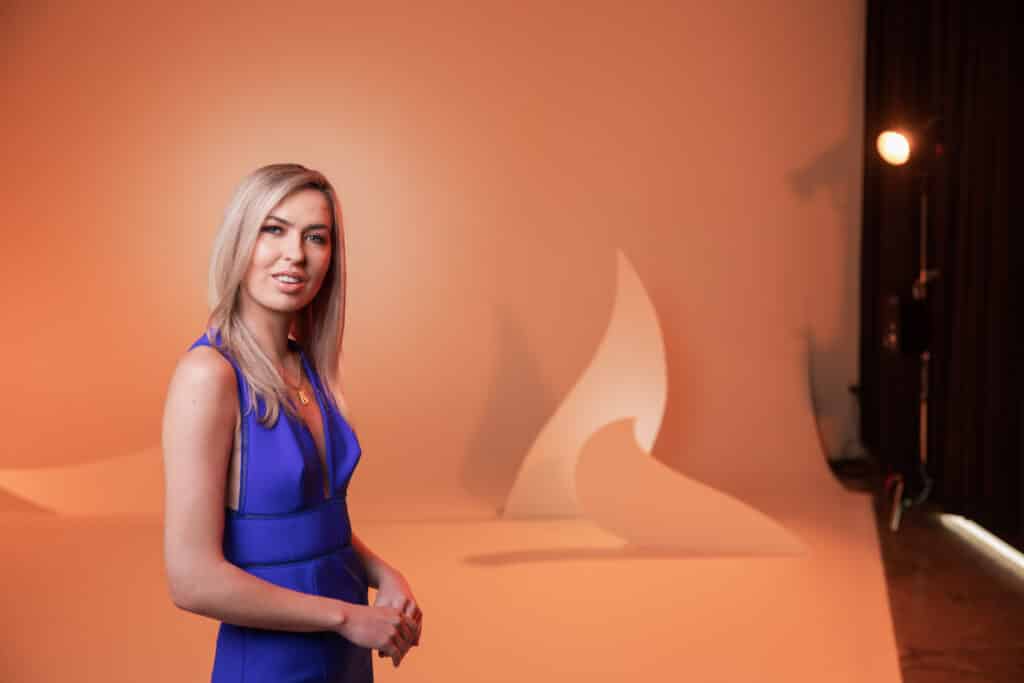
Anja Christoffersen. Source: Women’s Agenda.
What’s something you wish more people understood about living with the VACTERL association?
There is so much I can share about VACTERL; from my experiences to the diverse perspectives held by others in my community. I can easily say that I wish more people understood how everything can appear ‘perfect’ on the outside, but everyone has hidden challenges. VACTERL has taught me to not take the smallest things for granted, like being able to swallow my food without drinking or knowing when I need to go to the bathroom.
I distinctly remember as a child that no doctor could reconcile the ‘healthy’ looking child in front of them, with the trolley of stacked paper medical charts that would be wheeled around behind me. More than anything, I want people to know that VACTERL is one of many rare conditions. And to understand rare conditions, it doesn’t only take medical knowledge, but learning from the lived experience of those who are going through it. It can be easy to dismiss things that are rare, but collectively the challenges faced by the rare disease/conditions community are shared and can be tackled in a unified, systemic and societal way.
As the founder of Champion Health Agency, please tell us briefly what the agency aims to achieve and how people can get involved.
At Champion Health Agency we aim to professionalise the lived experience of people with disability and chronic illness – to remove the barriers of education and work experience to enable making a productive and meaningful impact on society and earning an income. Almost one in two people have a chronic health condition, and 20% have a disability, yet systems, products and services often aren’t designed for them, and rarely with or by them.
We aim to elevate lived experience perspectives in every way; whether that be speakers for events, in professional development, in content and strategy, as research partners, and so much more. We are currently in the process of transitioning to a not-for-profit to expand our reach and impact. People can get involved by hiring our talent, joining the social movement on our website, or applying to be represented.
As an IDPwD Ambassador, what change are you hoping to see achieved over the next year?
I’d like to see disability on the agenda, every day. Over the next year, I hope we can collectively work together to ensure that disability isn’t a separate ‘disability issue’, but an integrated part of bigger conversations and decisions that centre people with disability in them.
Personally, I’m working to launch two products – eco-friendly, recyclable subscription toilet paper (SHH!T Happens) and women-led supply chain speciality coffee (Against The Grain Coffee) through the Women with Disabilities Entrepreneur Network (WDEN), so that the general community has more opportunities to support disability-led businesses that reinvest in purpose, make conscious purchase decisions and create more meaningful conversations around disability, every day.
To me, diversity and inclusion is about celebrating the full spectrum of human experience, and acknowledging intersectionality – disability isn’t a separate topic, it’s one that is deeply interconnected and impacts us all (disabled or not). I believe if we all feel ownership over the changes that need to be made, and acknowledge that those impacted have the greatest expertise in coming up with the solutions, we will make true progress.
Ann-Mason Furmage
Ann-Mason is a disability advocate who has lived with disability for more than 50 years, following a Polio diagnosis as a child. Ann-Mason previously worked as an accountant and financial controller in Australia and the USA for over 20 years and has been President of the Physical Disability Council of NSW and Deputy Chair, Board of Directors, Assistive Technology Suppliers Australia.

Ann-Mason Furmage. Source: Women’s Agenda.
What’s something you wish more people understood about living with disability in older age?
I think most people don’t realise that more than half of people with disability are over the age of 65. The images of people with disability that are usually seen in the media are children or young people, but the reality is that most people with disability are no longer young. And they are not usually covered by the NDIS. The assistance offered to older people with disability is mostly focused on care, which is helpful, but it forgets assistive technology (the old-fashioned term was ‘aids and equipment’) which can be the difference between independence and dependence on caregivers.
As a prominent disability advocate, please tell us briefly the initiatives you’re most passionate about.
Accessible built environment, which includes transport, housing and all public spaces. When you make a space accessible and easier for people with disabilities, you make it accessible and easier for everyone.
As an IDPwD Ambassador, what change are you hoping to see achieved over the next year?
I know that achievements for people with disabilities are often incremental and painfully slow, but I would like to see more acceptance of people with disabilities. After all, we are just people. Okay, we might have some bits that don’t work in the ‘usual’ way, but we are just people, nevertheless.
Grace Edward
Grace is an Abegi and Teremo woman from Yei in South Sudan who grew up in Kenya, and acquired a vision impairment as a young child. She is passionate about advocating for the interests of CALD young people with disability.
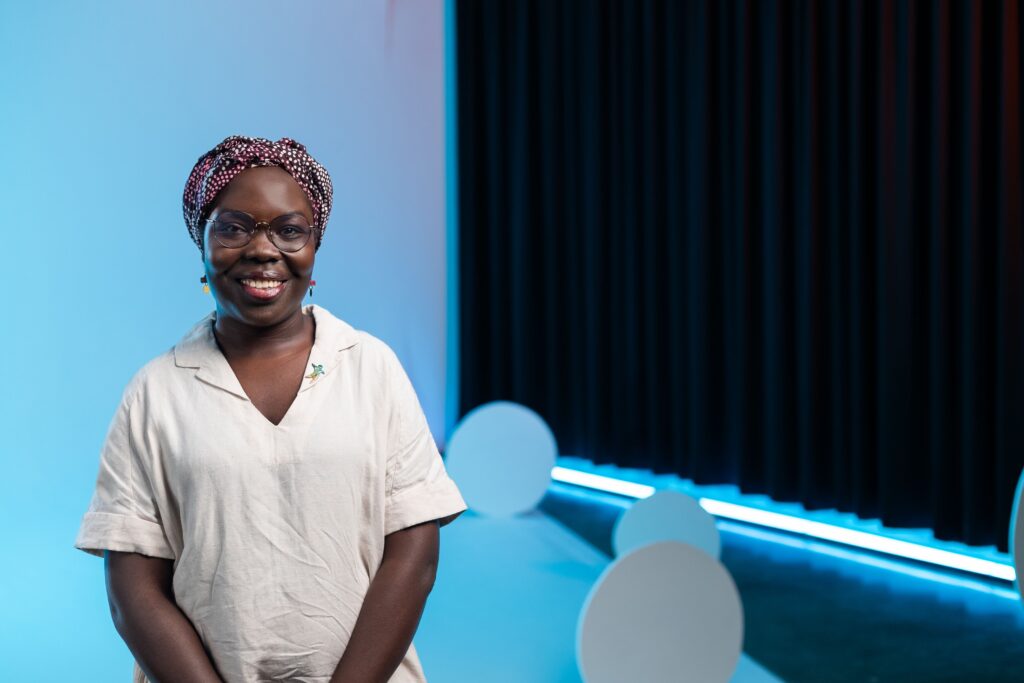
Grace Edward. Source: Women’s Agenda.
What’s something you wish more people understood about life as a Culturally and Linguistically Diverse (CALD) young disabled person?
I consulted with YCDC members for this question. So, the responses are not just my own but from the group.
- I wish more people understood that I am just a person who wants to be seen, valued, appreciated, and included.
- I wish more people understood that, as a CALD and disabled woman, my life is deeply political. Since before I was born and probably until the day I die because I will not live to see the systemic change that needs to happen yesterday.
- I wish more people understood that there are days I also struggle to be grateful for living in this country regardless of the hardships I had to flee for this ‘freedom’ because there is a lot of guilt and grief that comes with it.
- I wish more services understood that the issue is not my culture but their lack of understanding and awareness of it.
As co-founder of Youth CALD Disability Collective, please tell us what the volunteer group aims to achieve and how people can get involved.
The Youth CaLD Disability Collective (YCDC) is a volunteer group made up of Culturally and Linguistically Diverse (CALD) young disabled people across NSW, QLD, VIC, ACT, and WA. The YCDC is committed to being an inclusive, accessible, and encouraging environment for all identities, cultures, and beliefs.
People can get involved or in touch with us by contacting Kate Yeung from the Multicultural Youth Advocacy Network Australia via her email kate@myan.org.au. Currently, YCDC members are available for public speaking, training, and consultation opportunities.
As an IDPwD Ambassador, what change are you hoping to see achieved over the next year?
As the first person of African descent chosen to be an Ambassador for the International Day of People with Disability, I am hoping to see a reduction in inequalities. As a person from a CALD background with a disability navigating these two intersections brings double the barriers and inequalities that others usually face. Therefore, this year I hope to see Australia move towards being a more inclusive and equal place for everyone to live. A more inclusive Australia will not just benefit people from CALD backgrounds or disabled people but everyone.
Gretta Serov
Gretta is a motivational speaker, graphic designer, and founder and head writer of On Our Own Tracks. She is also a non-verbal wheelchair user, born with severe cerebral palsy.
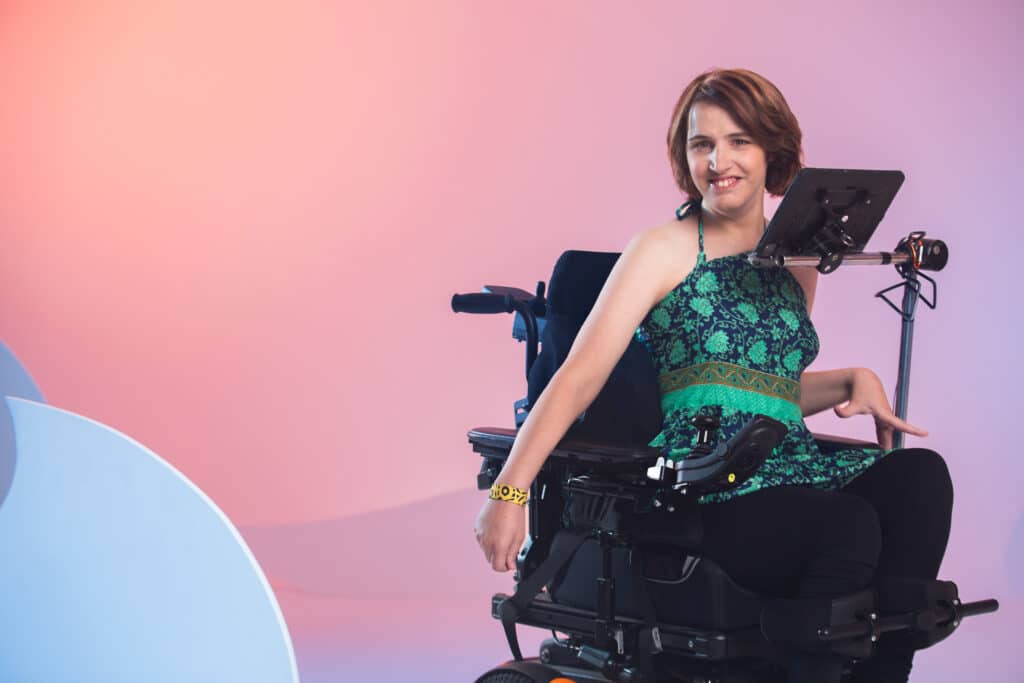
Gretta Serov. Source: Women’s Agenda.
What’s something you wish more people understood about living with Cerebral Palsy?
When I think about how people sometimes visualise someone who has Cerebral Palsy, I feel that a lot of people visualise one image, involving a large wheelchair and an intellectual impairment. With any disability, especially Cerebral Palsy, it’s important for people to understand that everyone with any disability is different and most of us strive to be identified as any other person without a disability, especially if we are nonverbal or have an intellectual disability.
As the founder and head writer of On Our Own Tracks, please tell us briefly what the blog aims to achieve and how people can get involved?
On Our Own Tracks was originally a blog that I began about six years ago. It started as I was coming out of a really big time of my life and wanted a way to pay forward the amazing support I had around me. In the years since, we saw a real need for things such as accessibility in employment and the merging of the disabled and abled-bodied communities. For these reasons, we are currently an organisation that focuses on ventures such as having all-inclusive meetups, flexible employment and any other opportunities we see that we might be able to do in order to help our community, such as running support worker workshops. We are online based (including on Facebook and Instagram) so anyone is welcome to join in any way they want.
As an IDPwD Ambassador, what change are you hoping to see achieved over the next year?
I am very excited to use this amazing opportunity as an IDPwD Ambassador to shine a light on the severely disabled and nonverbal members of our community. I am also excited to use my role to outline the importance of merging the disabled and abled-bodied communities together.
Hannah Diviney
Hannah is an author, actress, disability advocate and the editor in chief of the global media company Missing Perspectives. She has also recently released her first book, I’ll Let Myself In.
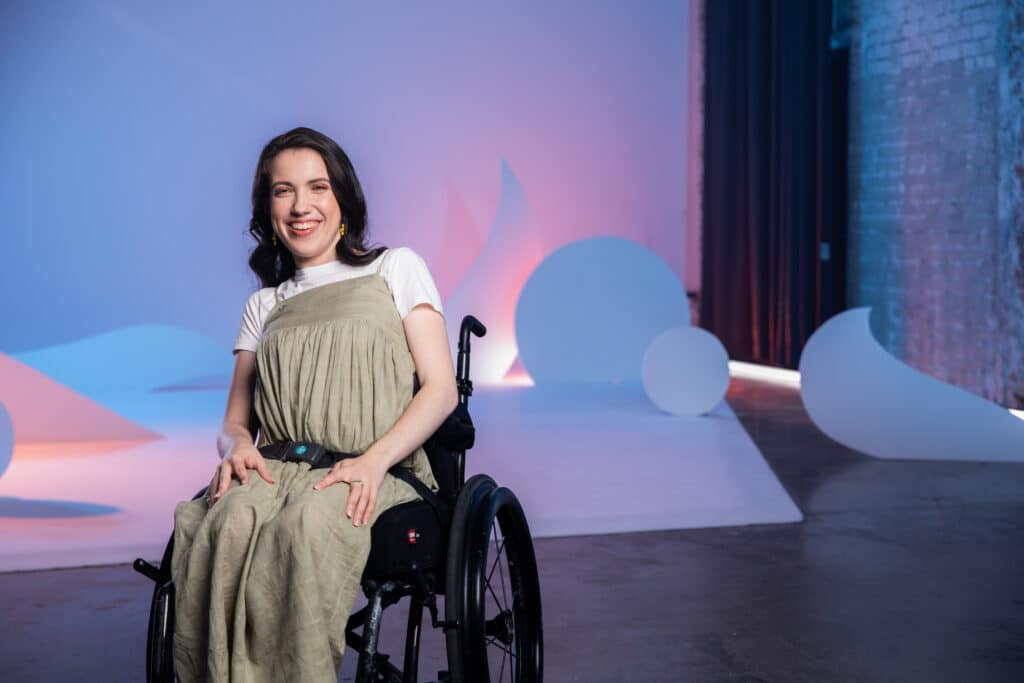
Hannah Diviney. Source: Women’s Agenda.
What’s something you wish more people understood about living with Spastic Diplegic Cerebral Palsy?
This is probably going to sound obvious, but I wish people understood two things:
- Yes, CP is a ‘childhood’ disability in that it’s something we have from birth BUT those children, as cute and as ‘pull at the heartstrings’ as they may be, grow up and want to live full, rich lives resplendent with all the possibilities of adulthood.
- I can’t ever take a break from it. It doesn’t go away. I don’t get a pause button. So be aware that I am carrying a lifetime of microaggressions and trauma and emotional labour and my own complex ever-changing relationship with my disability.
You’ve mentioned you feel a duty to dismantle ableist language whenever possible. Why is this mission so critical and how others can do the same?
It’s important because language matters and so too do the stories we tell with it. Language is one of the ways we tell each other what attitudes and beliefs we’re willing to accept. So, using ableist language, language that diminishes, undermines, or laughs in the face of disabled people being valued as human beings or thought of as intelligent, for example, sends the message that that’s something we’re OK with, and in 2023, I think it’s more than time the opposite be true. You can do the same as I do in fighting it; by paying attention to the words you, your friends and family use when talking about each other. If you’ve made a mistake, done something wrong or odd, or are teasing other people good-naturedly, if you’re reaching for insults or jokes that are ableist, stop and think before you use them.
As an IDPwD Ambassador, what change are you hoping to see achieved over the next year?
Gosh, so many things! Let’s start with disabled representation, experiences, and stories as well as the allyship we need being something people care about 365 days a year, instead of just the one… Let’s make it second nature. Let’s give people with disabilities a much broader and normalised frame of reference for what they can be, not just Paralympians, sad people to be pitied or advocates who are bright and shiny to the media.
This article was first published by Women’s Agenda.
Handpicked for you
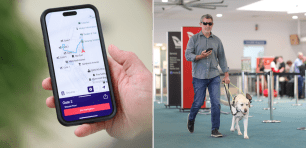
Wayfinding app BindiMaps touches down inside Sunshine Coast airport



COMMENTS
SmartCompany is committed to hosting lively discussions. Help us keep the conversation useful, interesting and welcoming. We aim to publish comments quickly in the interest of promoting robust conversation, but we’re a small team and we deploy filters to protect against legal risk. Occasionally your comment may be held up while it is being reviewed, but we’re working as fast as we can to keep the conversation rolling.
The SmartCompany comment section is members-only content. Please subscribe to leave a comment.
The SmartCompany comment section is members-only content. Please login to leave a comment.